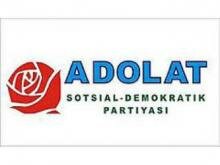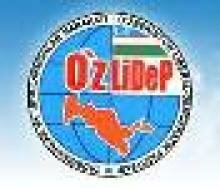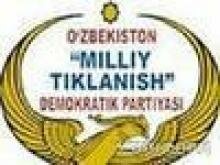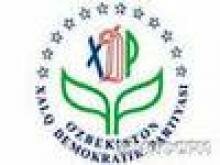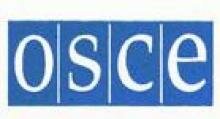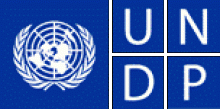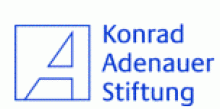Фотогалерея
Наши публикации
Национальные партнёры
Международные партнёры
Интернет опрос посетителей сайта
Development of civil society in Uzbekistan: state and prospects
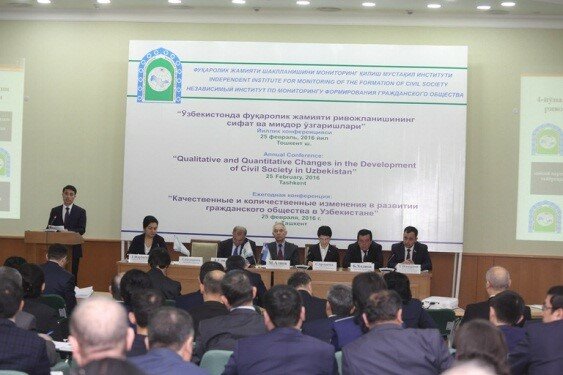
On 25 February 2016, Independent Institute for Monitoring the Formation of Civil Society (IIMFCS) held an annual conference on the topic: “Quantitative and Qualitative Changes in the Development of Civil Society in Uzbekistan” in Tashkent.
The event attended members of the Senate and the Legislative Chamber of Oliy Majlis of Uzbekistan, representatives of public and state organizations, leading research and educational institutions, foreign and international organizations accredited in Uzbekistan, members of the Foundation Board of the Institute, as well as national and international media.
Main goal of the conference is to inform the general public, foreign experts and analytics on the activities of the IIMFCS in 2015, as well as a comprehensive discussion of the status and prospects of civil society development in Uzbekistan.
Director of the Institute G. Abdukarimov has presented annual report on the State of Civil Society in Uzbekistan 2015 to the conference participants.
It is noted, that comprehensive measures implemented in the country during the years of independence aimed at the creation of organizational and legal conditions for the formation of civil society institutions, which are an important factor in protecting the rights and interests of people, enhance their social activity and legal culture, ensure a balance of interests in society.
It was implemented a set of measures to strengthen the role and importance of civil society in the realization of public control, raising legal awareness of the population, solution of the major socially significant tasks, as well as information services of government agencies and the media to ensure the transparency of public authorities and local governance. So, for the reporting period IIMFCS held more than 2,060 events on various aspects of civil society development in the central and local levels, 382 of which with the departure to regions and remote areas.
It was established cooperation with national and international partners (OSCE, UNESCO, Friedrich Ebert Foundation, UNDP and others) on the study and use of the developed democratic countries experiences in the sphere of formation of civil society, including in the draft legislation.
During the event, it was noted that as a result of successive formation of a favorable regulatory environment, year after year expanding and strengthening appropriate infrastructure - self-government institutions, numerous non-profit organizations, the media, non-governmental organizations and foundations, trade unions and political parties, other civil institutions, designed to promote citizens to exercise their diverse social interests, act as mediators in the relationship between state and society.
Thus, it stressed the importance of adopting the Law "On social partnership", after the entry into force of which intensified its efforts to improve the legal and institutional framework for cooperation of the government and local governments with NGOs and other civil society institutions.
In the framework of the practical implementation of the norms of the Law at Jokargy Kenes of Karakalpakstan, the Tashkent city and regional council of people's deputies was created a public commission on social partnership. Its activities will contribute to the further enhancement of the role and responsibilities of the representative and executive authorities in the field of formation and free development of civil society institutions, as well as the creation of additional organizational and legal conditions, economic and legal guarantees to ensure the active participation of NGOs and other civil society institutions in democratic reforms and modernization of the country
As a result of measures taken during 2015 the trend of steady growth in the number of NGOs involved in grant competitions held by the Public Fund for Support of NGOs and other civil society institutions under the Parliament of the country. Thus, if in 2010 the competition was attended by 275 NGOs, 82 of which were winners, then the figure in 2015 was 528, of which 177 were awarded grants.
The conference also noted an increase in understanding of the state bodies of the role and social organizations value in solving socially important issues in the field, in view of the involvement of leaders and activists of 50 non-profit organizations in the work of the republican interdepartmental commissions (councils, working groups), established in accordance with the decisions of the Head of State and the government.
At the same time, speakers noted that in 2015 major events that significantly influenced the whole context of the actual agenda of civil society in Uzbekistan, become reforms aimed at improving the mechanisms of public control by the national media, the strengthening of the organizational and legal framework for the public inform about progress in the country, creating the conditions for ensuring transparency of public authorities and management.
In order to effectively enforce the Act on the initiative of the Independent Institute for monitoring the formation of civil society, as well as a number of other NGOs, the media and government agencies formed the Public Council for the coordination and monitoring activities to ensure the transparency of public authorities and management in order to facilitate the formation of the state system to ensure transparency of public authorities and management, implementation and evaluation of the system monitoring the openness of public authorities and management. To date, the Public Council was developed and put into practice "transparency index" of public authorities bodies, one of the criteria of which is level of cooperation of state bodies with the media and civil society institutions.
The conference also noted the increasing role of regional media in identifying and covering topical issues contain an objective criticism of the activities of local government and economic management to address the pressing issues of socio-economic development of regions. Thus, the analysis of the contents of more than 450 of the most significant national and regional newspapers showed that if in 2012 the press recorded 659 most important critical and analytical materials, then in 2015 this figure amounted to 3564 articles.
Also, a new impetus to the development of the institute of citizens as a form of public control has given the implementation of the Law "On appeals of individuals and legal entities came into force in 2015". Thus, it was extended practice of citizens' right to refer in the state bodies, improved quality of work and responsibility of government agencies to review citizens’ referrals.
Analysis of the activities of political parties testifies to increase their role in socio-economic development of the country. In particular, increases the activity of groups of deputies of local representative bodies in the implementation of deputy control over the activities of executive bodies, the state of execution in the field of laws and other norms of the country's legislation. In particular, during the last period of the deputies of each political party widely used the rights of deputy's request. If the 1598 parliamentary requests were sent in 2014, then in 2015 their number reached 3505.
The event also highlighted the ongoing work to further improve the activities of citizens' self-government bodies in order to strengthen their power and influence in solving the problems of territories, the implementation of targeted social protection of the population. So, on an ongoing basis training courses to improve the skills of management and employees of citizens' assemblies. Thus, during the training courses in operation are trained 83% of the representatives of the citizens' self-government.
However, during the annual report have been noted unused potential in the implementation of the IIMFCS tasks, the existing problems in the development of civil society institutions.
In general, during the event there was an open and constructive exchange of views on the issues included in the conference program. The conference was developed and adopted appropriate recommendations to further strengthen the role of civil society institutions in democratic renewal and modernization of the country.
Information service of IIMFCS







